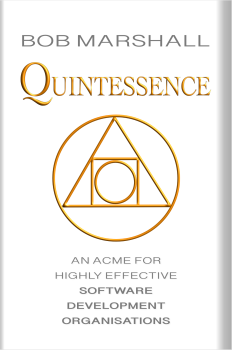Interactive Book: Quintessence – Chapter 22, Relationships
Sidecar for Chapter 22 of “Quintessence” (Relationships)
Selected ChatGPT Prompts
In this chapter on “Relationships” from the book “Quintessence”, the author discusses the importance of humane relationships in organisations and how they contribute to the overall effectiveness and success. The following prompts will help you explore various aspects of relationships, their qualities, and their role in organisations. You can customise these prompts to fit your specific context or interests.
- [Purpose] Understand the importance of relationships in organisations.
[Prompt] How do relationships between people contribute to organisational effectiveness and success? - [Purpose] Explore the concept of quintessential organisations.
[Prompt] Define a quintessential organisation and explain how it prioritises relationship-building skills and the study of motivation, engagement, sociology, and psychology. - [Purpose] Delve into the difference between transactional and loving or altruistic relationships.
[Prompt] Compare and contrast transactional relationships with loving or altruistic relationships in the context of organisational success. - [Purpose] Understand the qualities of humane relationships.
[Prompt] What are the key qualities of humane relationships in organisations, and how do they support mutual growth and positive personal change? - [Purpose] Discuss the role of meeting emotional and other needs in organisations.
[Prompt] Explain the concept of obliquity and how meeting individuals’ emotional and other needs can lead to improvements in organisational productivity. - [Purpose] Explore the idea of changingness and its significance in relationships.
[Prompt] How does changingness, as opposed to fixity, influence the nature of relationships and personal growth within organisations? - [Purpose] Learn about growth-promoting communication.
[Prompt] Describe growth-promoting communication and its role in fostering humane relationships within organisations. - [Purpose] Discuss the impact of recognising each other as human beings.
[Prompt] Why is it important for individuals in an organisation to recognise each other as human beings, and how does this affect relationships and personal growth? - [Purpose] Understand the role of empathy and active listening in relationships.
[Prompt] Explain the importance of empathy and active listening in building strong, healthy relationships within organisations. - [Purpose] Explore the concept of human scale development.
[Prompt] Define human scale development and discuss its relevance to relationships and overall well-being within organisations.
A Suggested Learning Path on the Topic of “Relationships”
- Understanding the value of relationships in organisations.
[Prompt] Explain the role of relationships between people in contributing to organisational effectiveness and success, particularly in quintessential organisations.
[Exercise] Reflect on your workplace and identify three ways in which relationships impact the overall effectiveness and success of your organisation. - Exploring quintessential organisations.
[Prompt] Describe the characteristics and priorities of quintessential organisations in terms of relationship-building skills and their focus on motivation, engagement, sociology, and psychology.
[Exercise] Analyse your organisation’s current priorities and determine if they align with the values of a quintessential organisation. If not, suggest three changes that could be made to better align with quintessential values. - Examining the difference between transactional and loving or altruistic relationships.
[Prompt] Compare transactional relationships with loving or altruistic relationships in the context of organisational success, and explain how the latter can contribute to a more effective organisation.
[Exercise] Observe the relationships within your workplace and identify examples of transactional and loving or altruistic relationships. Develop a plan to foster more loving or altruistic relationships in your organisation. - Exploring the qualities of humane relationships.
[Prompt] Describe the key qualities of humane relationships in organisations and their role in supporting mutual growth and positive personal change.
[Exercise] Assess the quality of relationships within your organisation and identify areas for improvement. Develop a plan to cultivate more humane relationships among team members. - Discussing the concept of obliquity and meeting emotional needs.
[Prompt] Explain how meeting individuals’ emotional and other needs can lead to improvements in organisational productivity through the concept of obliquity.
[Exercise] Identify three ways your organisation currently meets or fails to meet the emotional needs of its employees. Create a strategy to address these areas and promote a more supportive work environment.
This learning path offers a structured approach to exploring the topic of Relationships in the context of quintessential organisations.
Some Alternative Learning Paths
There are numerous learning paths that can be useful in the context of Relationships. Here are ten additional learning paths to consider:
- Communication Skills: Focusing on effective verbal and nonverbal communication, active listening, and empathy in relationships.
- Conflict Resolution: Exploring strategies to manage and resolve conflicts in personal and professional relationships.
- Emotional Intelligence: Enhancing self-awareness, self-regulation, empathy, and social skills to foster healthier relationships.
- Team Building: Developing techniques for building trust, collaboration, and a sense of belonging within a group or team.
- Leadership Styles: Investigating different leadership styles and their impact on relationships within organisations.
- Diversity and Inclusion: Promoting understanding and appreciation of individual differences to foster stronger connections and collaboration.
- Work-Life Balance: Examining the importance of maintaining a healthy balance between work and personal life to sustain positive relationships.
- Organisational Culture: Studying the role of organisational culture in shaping relationships and the overall work environment.
- Personal Growth and Development: Encouraging individual growth and development to enhance interpersonal relationships and overall well-being.
- Networking and Building Professional Relationships: Exploring strategies to cultivate and maintain meaningful professional connections.
Each of these learning paths can be tailored to specific needs and interests, providing a comprehensive understanding of the various aspects of Relationships in different contexts. Ask ChatGPT to elaborate on one or more of these paths, or suggest others.

